A Next-Generation Solution for Efficient, Flexible Heating and Cooling
Design, Installation, and Maintenace needs. Call
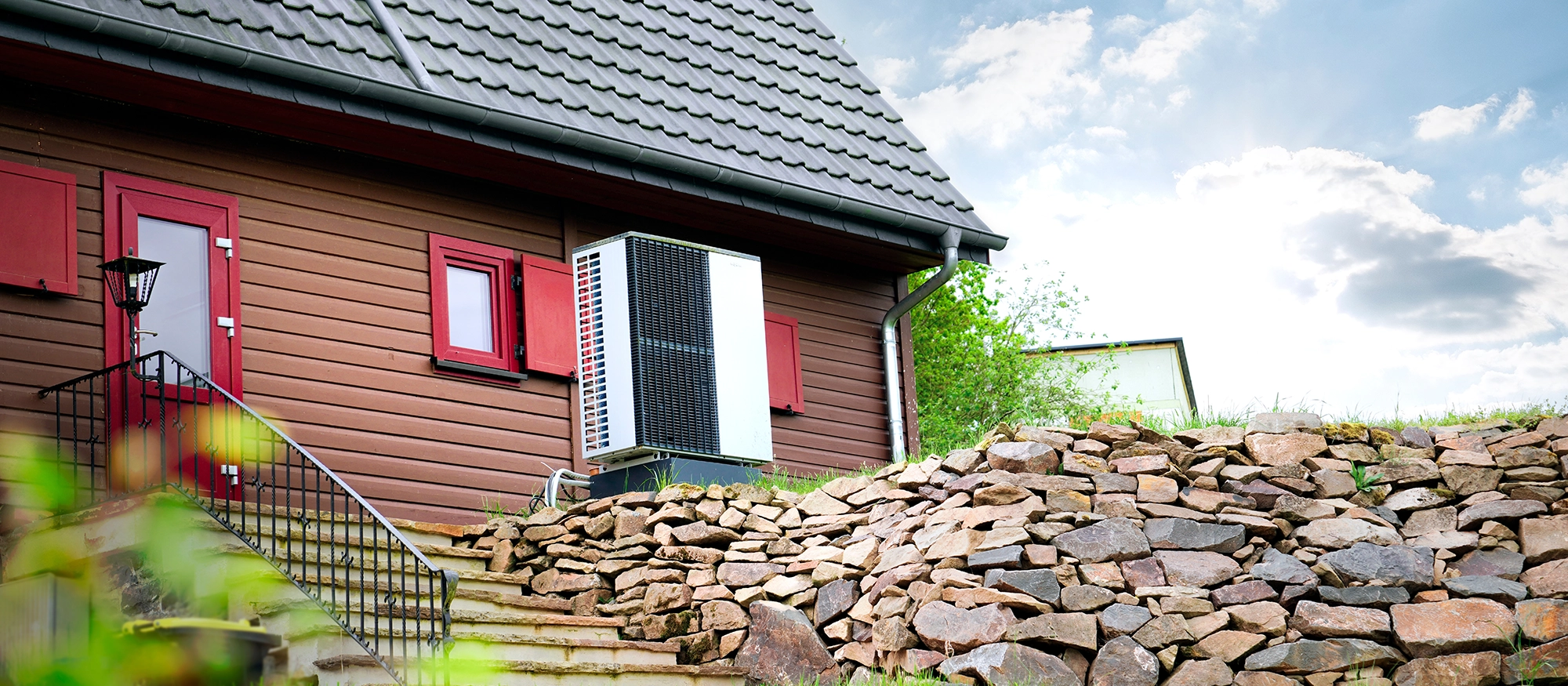
A Next-Generation Solution for Efficient, Flexible Heating and Cooling
Design, Installation, and Maintenace needs. Call
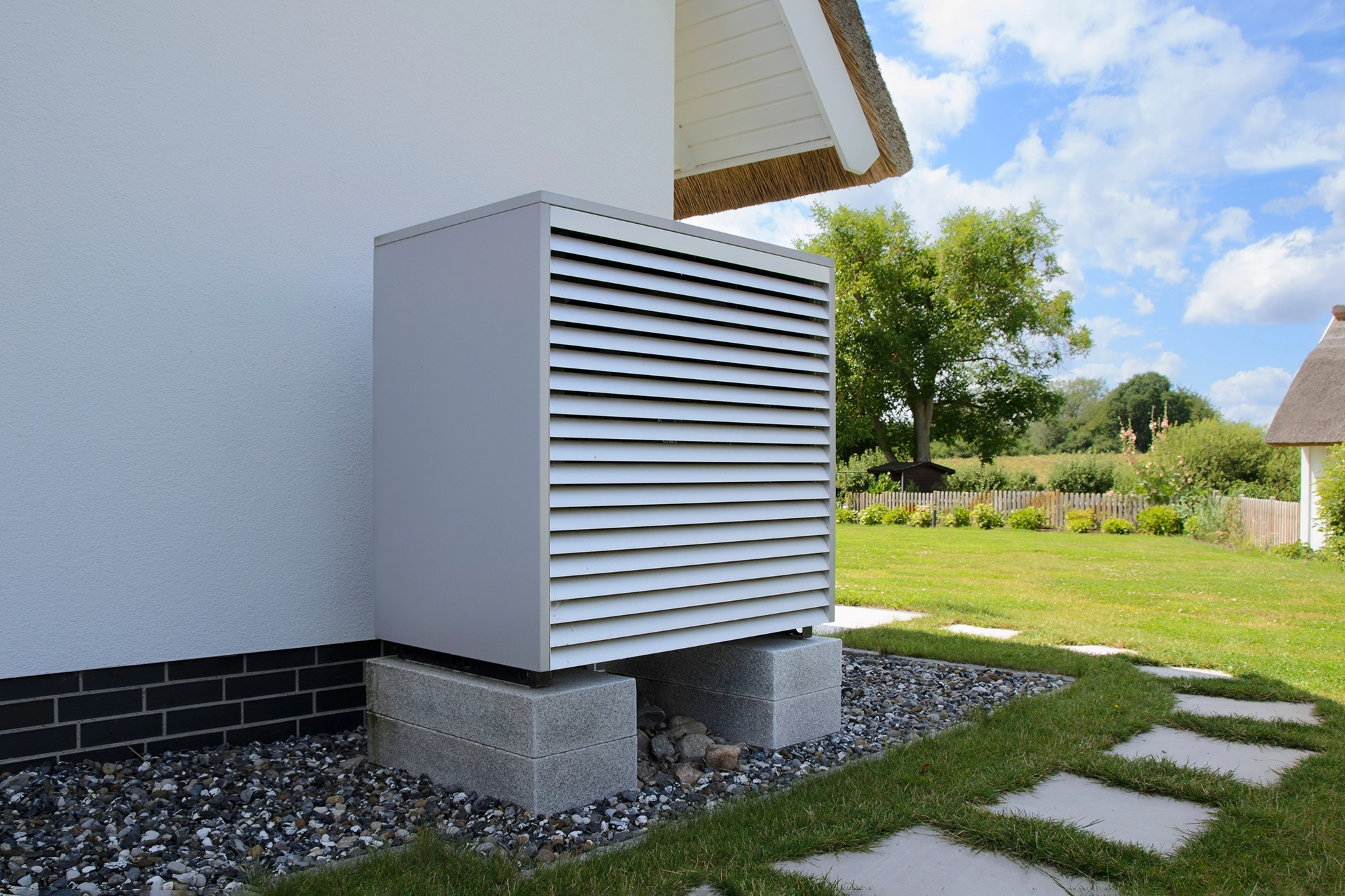
A refrigerant split heat pump system is an advanced, low-carbon heating solution that delivers both heating and cooling through a more efficient and stable method of heat transfer. Unlike traditional air source heat pumps such as monobloc systems, which rely on circulating water between outdoor and indoor units (usually with added glycol to prevent freezing), refrigerant split systems use a sealed refrigerant loop. This allows for greater thermal efficiency, more flexible installations, and superior performance in cold weather.
At Masper Build LTD, we specialise in the supply, design, and installation of refrigerant split systems for residential and commercial properties. These systems are part of our broader energy-efficient offering, which includes boiler installations, gas and central heating solutions, and full electrical system design and upgrades. Our team integrates these systems into complete energy strategies to help clients lower bills, improve comfort, and reduce environmental impact.
The system is made up of two main components — an outdoor unit (the condenser) and an indoor unit (often called the hydrobox). These units are connected by refrigerant lines that circulate a pressurised gas designed to absorb and release heat efficiently.
Unlike a monobloc air source heat pump, which requires water to flow between the external unit and the house — and therefore needs antifreeze to avoid freezing — the refrigerant split system keeps all water circuits indoors. This avoids the need for glycol, which not only adds maintenance costs but also reduces heat transfer efficiency. For a full comparison between monobloc and split system designs, visit our detailed air source heat pump overview.
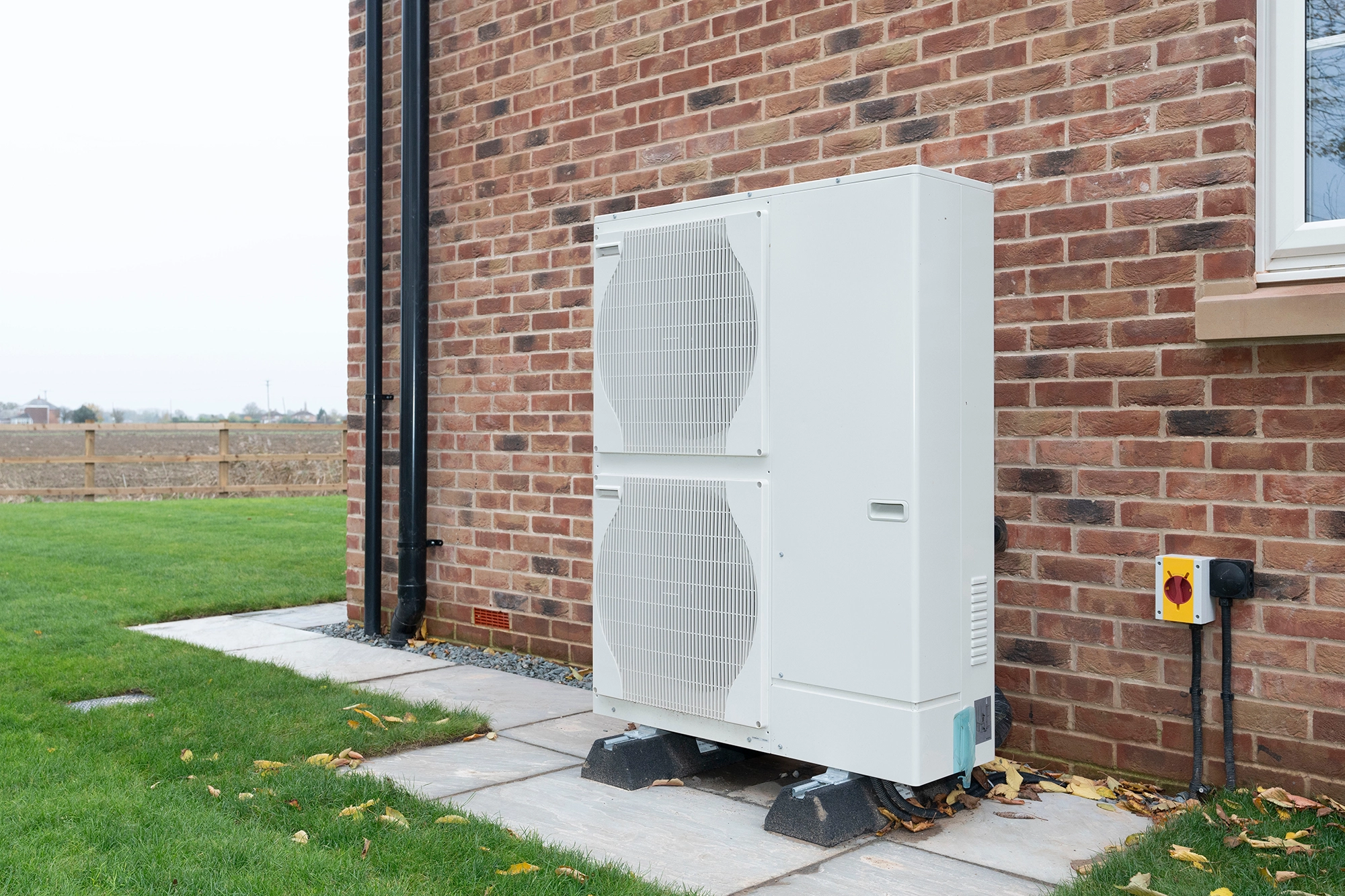
One of the biggest advantages of refrigerant split systems is their increased reliability during colder months. Because refrigerant can extract heat even from freezing air, and because there’s no water running through outdoor pipework, these systems eliminate the risk of frozen external pipes. At Masper, we often install models such as the Daikin Altherma 3R, which continue providing consistent heating even when outdoor temperatures fall below -20°C, depending on the model.
We also design systems that work seamlessly with other technologies, including radiators, underfloor heating systems, and cooling options. Many split heat pumps can operate in reverse mode to provide summer cooling — an increasingly valuable feature in the UK. If you’re interested in comfort cooling, learn more about our integrated HVAC and cooling systems.
Another key advantage is the flexibility of installation. With refrigerant split systems, the outdoor unit can be positioned up to 50 metres away from the indoor hydrobox. This allows us to hide the condenser unit in gardens, side passages, or behind landscaping features, preserving the visual appeal of your property — especially important for listed buildings or high-end homes.
At Masper, we take pride in working closely with clients to deliver aesthetic and functional designs that don’t compromise on comfort or appearance.
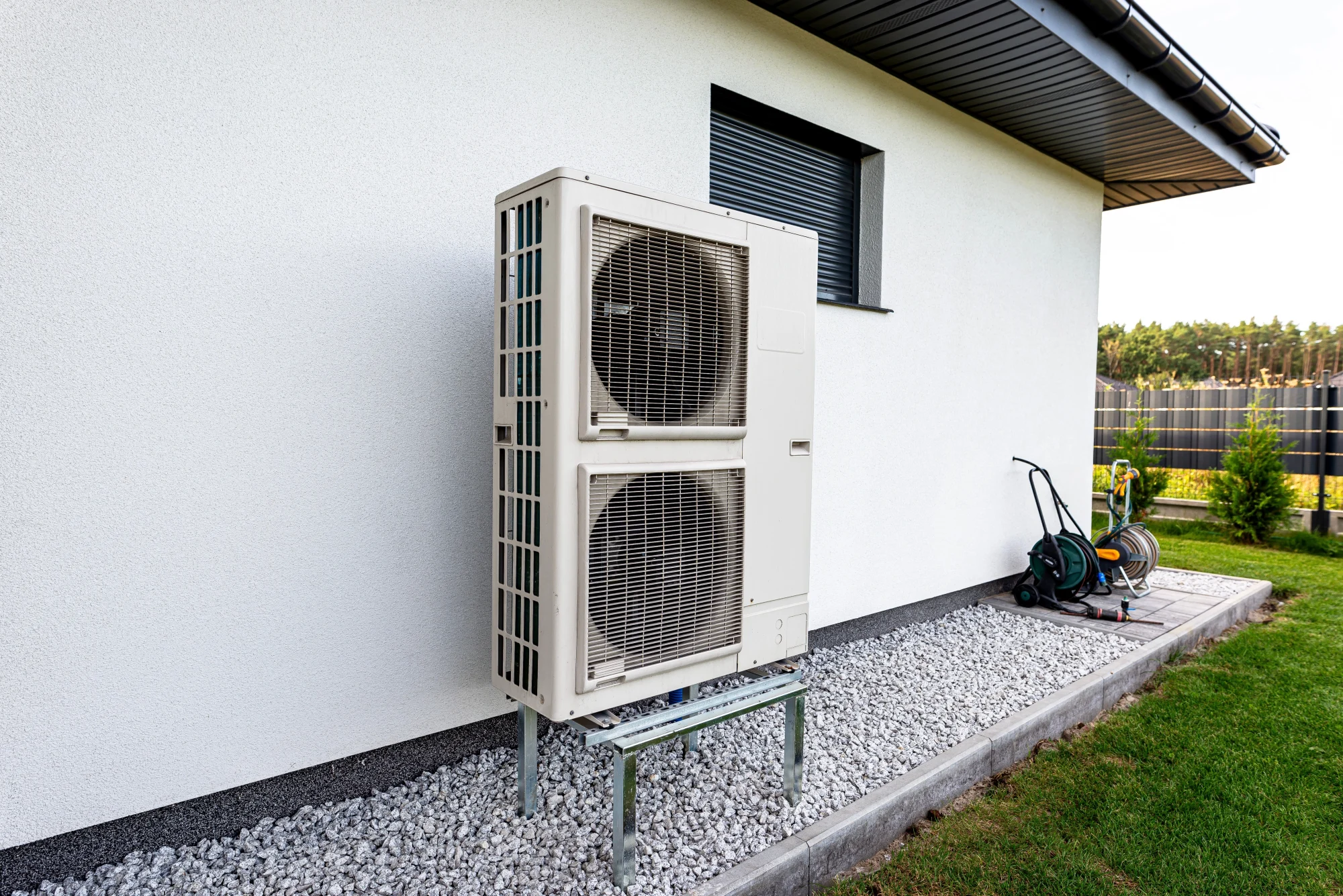
High Efficiency, Cold Weather Reliability, and Year-Round Comfort
Refrigerant split heat pump systems offer a host of advantages over traditional heating and cooling technologies — particularly when compared to monobloc air source heat pumps. These systems are engineered to deliver greater thermal efficiency, higher reliability in freezing conditions, and the flexibility to support both heating and cooling, depending on the system configuration.
At Masper Build LTD, we’ve delivered successful installations across a range of properties using industry-leading products like the Daikin Altherma 3R — a model known for its ability to maintain heating performance even when outdoor temperatures plunge as low as -20°C. Whether you’re retrofitting a property or designing a high-performance new build, these systems offer one of the most balanced, future-ready heating solutions on the market today.
One of the most important benefits of refrigerant split heat pumps is their superior energy efficiency. Because these systems avoid using water in external pipework, there’s no need for antifreeze mixtures such as glycol, which can reduce the effectiveness of thermal transfer.
Instead, heat is moved using a refrigerant loop, which is both better insulated and more thermally responsive. This design reduces heat loss, allows for faster energy transfer, and lowers running costs — especially when compared to glycol-based monobloc systems. Clients often see additional performance gains when these heat pumps are paired with modern heating distribution systems, such as underfloor heating or low-temperature radiators. Learn more about compatible heating technologies by visiting our gas and central heating systems page.
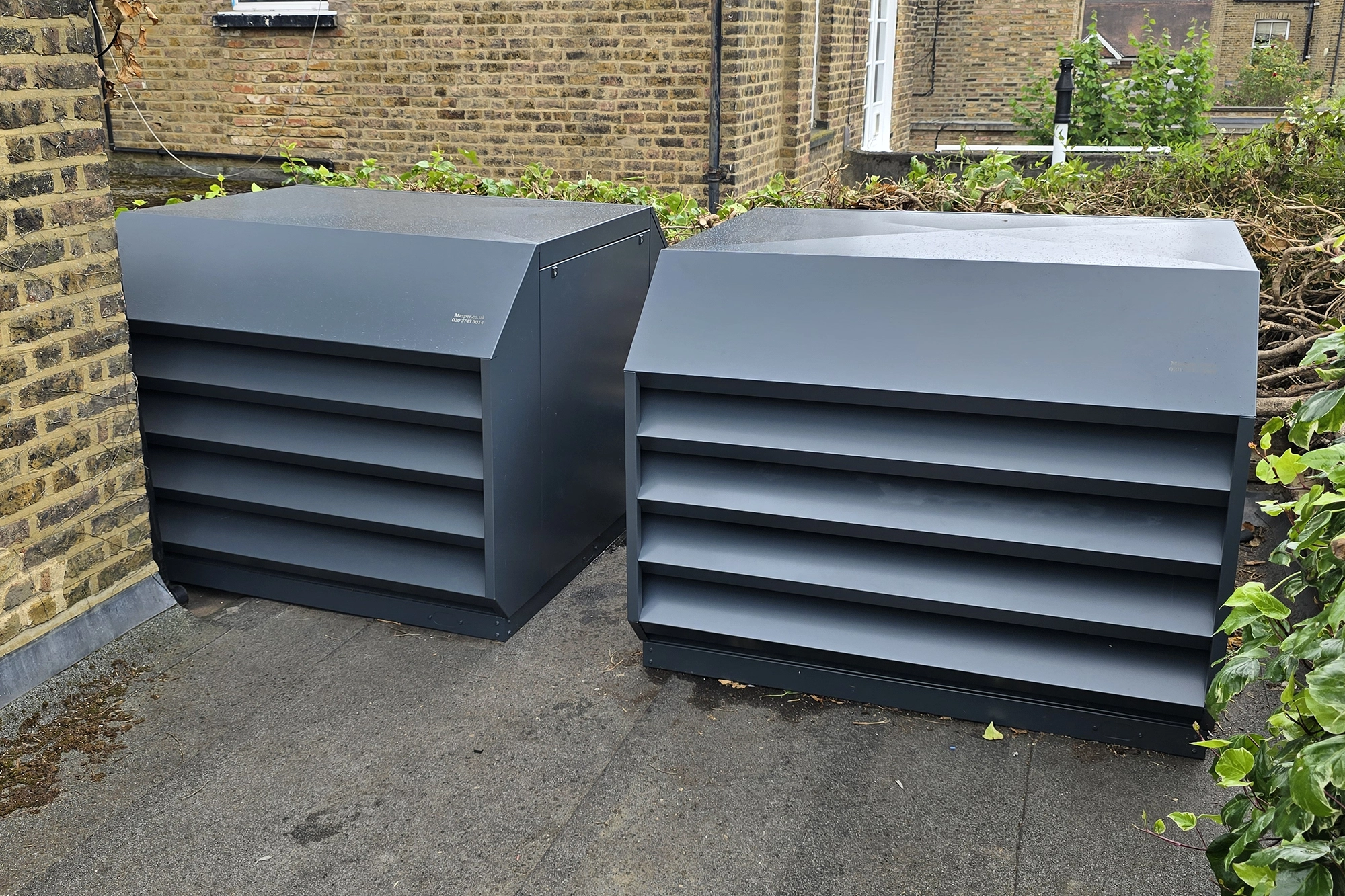
Traditional air source heat pumps can struggle during prolonged periods of sub-zero temperatures. In contrast, refrigerant split systems continue to deliver consistent performance even in harsh winter conditions, with no risk of frozen outdoor pipework. This reliability is especially important in remote areas or homes without a secondary heating source.
With no external water connections, the refrigerant split design keeps all hydronic elements safely indoors, protected from freezing. We’ve installed systems in exposed locations and historic buildings with great success, and always conduct a thorough site assessment to ensure optimal placement. If you’re already exploring low-carbon alternatives to fossil fuel boilers, we recommend reviewing our boiler installation services as part of a full transition plan.
Some models of refrigerant split heat pumps can be configured to offer both heating and cooling, providing year-round comfort. This reversible operation may require additional system components, such as fan coil units or smart controls — but it opens the door to integrated climate management from a single unit.
Our team also specialises in designing and installing cooling systems, and we can help clients choose models that support both comfort heating in the winter and passive or active cooling in the summer months. This approach is ideal for energy-conscious homeowners looking to future-proof their properties against rising summer temperatures.
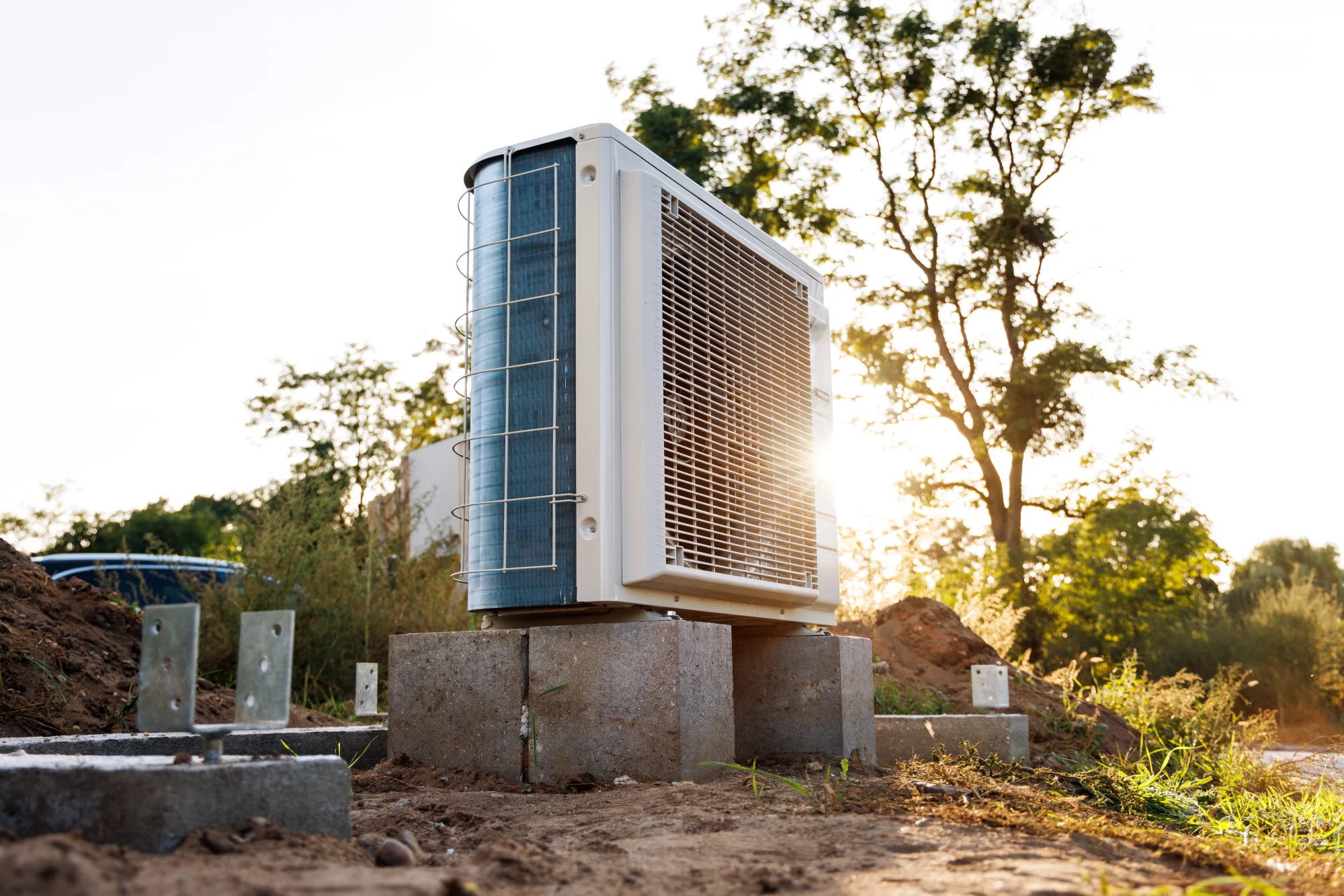
With a refrigerant split system, the outdoor condenser can be placed up to 50 metres away from the indoor unit. This makes it possible to install the condenser in gardens, side passages, or tucked behind landscaping features, maintaining your property’s aesthetic appeal. This level of flexibility is unmatched by many other heating systems.
Whether you’re working with a clean slate or integrating into an existing electrical or heating layout, our experienced team ensures a smooth and professional installation. You can explore more about our electrical expertise here, which is often essential when upgrading or installing heat pumps.
Smarter Heat Transfer, Lower Risk, and Seamless Integration into Modern Systems
Understanding how a refrigerant split heat pump works is key to appreciating why it has become a preferred solution over traditional monobloc systems — especially for UK homes and commercial buildings that demand high efficiency, reliability, and design flexibility.
Unlike conventional air source heat pumps that rely on moving water between outdoor and indoor units, refrigerant split systems use a sealed refrigerant loop to transfer energy. This method eliminates the need for glycol to prevent freezing in external pipework and significantly reduces heat loss, making the entire system more responsive and energy-efficient. At Masper Build LTD, we design and install these systems with full integration in mind — from power supply upgrades to compatibility with gas and central heating and electrical systems.
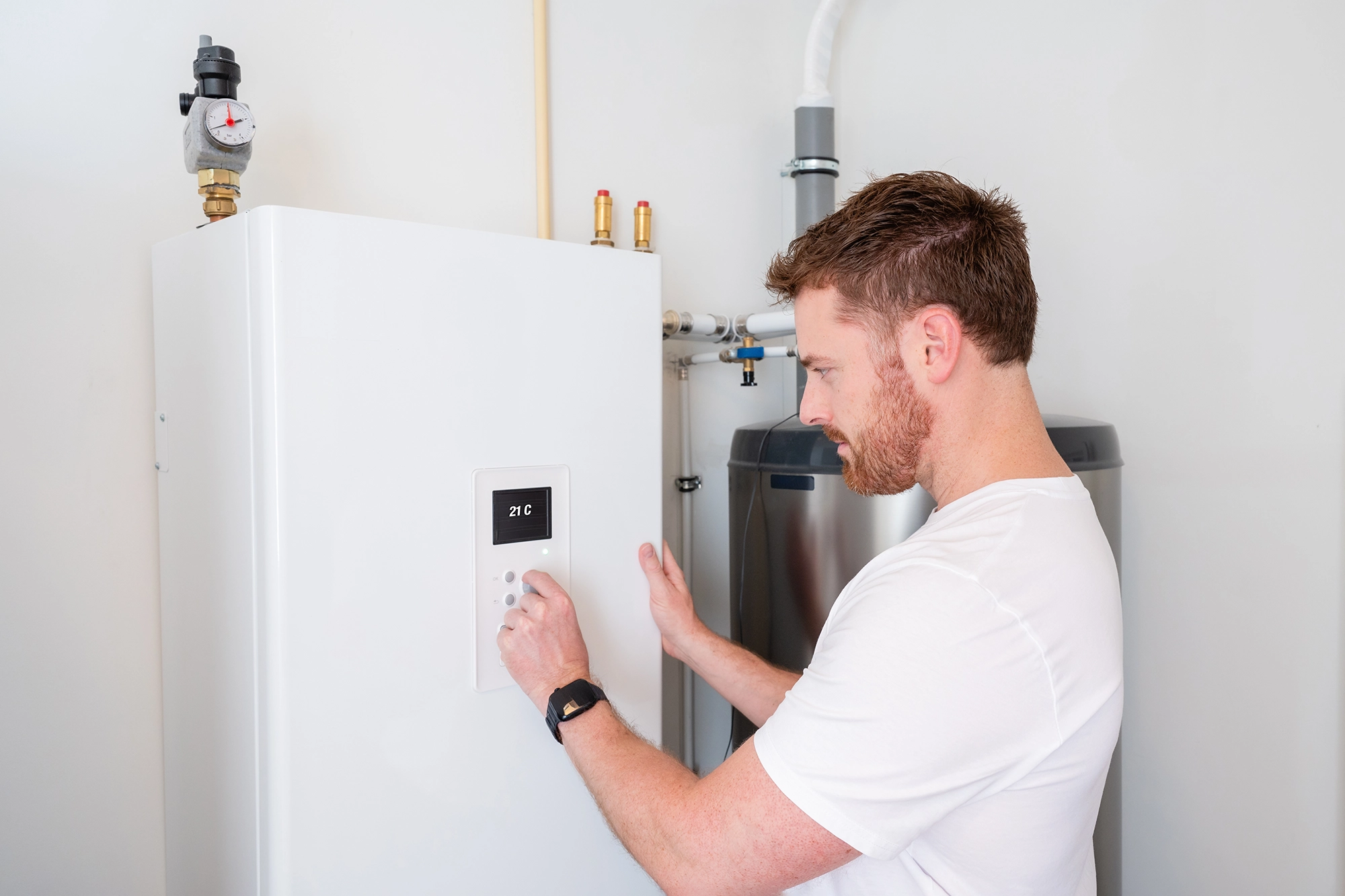
The refrigerant split heat pump system comprises two main components:
Outdoor Condenser Unit – This unit absorbs thermal energy from the outside air using refrigerant. Even in extremely cold weather, down to -20°C or lower (depending on the model), the refrigerant continues to extract heat effectively.
Indoor Hydrobox (Heat Exchanger Unit) – Once the refrigerant is heated and pressurised, it travels through insulated lines to the indoor unit, where the heat is transferred to the property’s heating system — such as radiators or underfloor heating.
Because water is kept inside the building, and only refrigerant flows outside, the system avoids common cold-weather risks such as pipe freezing. No glycol, no burst pipes, and no compromised efficiency.
For homeowners comparing different heating technologies, we encourage exploring our air source heat pump system guide, which includes insights into how refrigerant split systems stack up against monobloc options.
Some refrigerant split heat pumps offer reversible functionality, meaning the system can provide cooling during warmer months. In this mode, the cycle runs in reverse — pulling heat from the indoor space and releasing it outside. This is an excellent option for clients who want year-round comfort without installing a separate air conditioning system.
In fact, when integrated into a broader HVAC strategy, these systems align perfectly with our dedicated cooling solutions — particularly when used with underfloor or fan coil emitters capable of handling both heating and cooling. We can design dual-purpose systems tailored to your needs, especially in new builds or high-spec renovations.
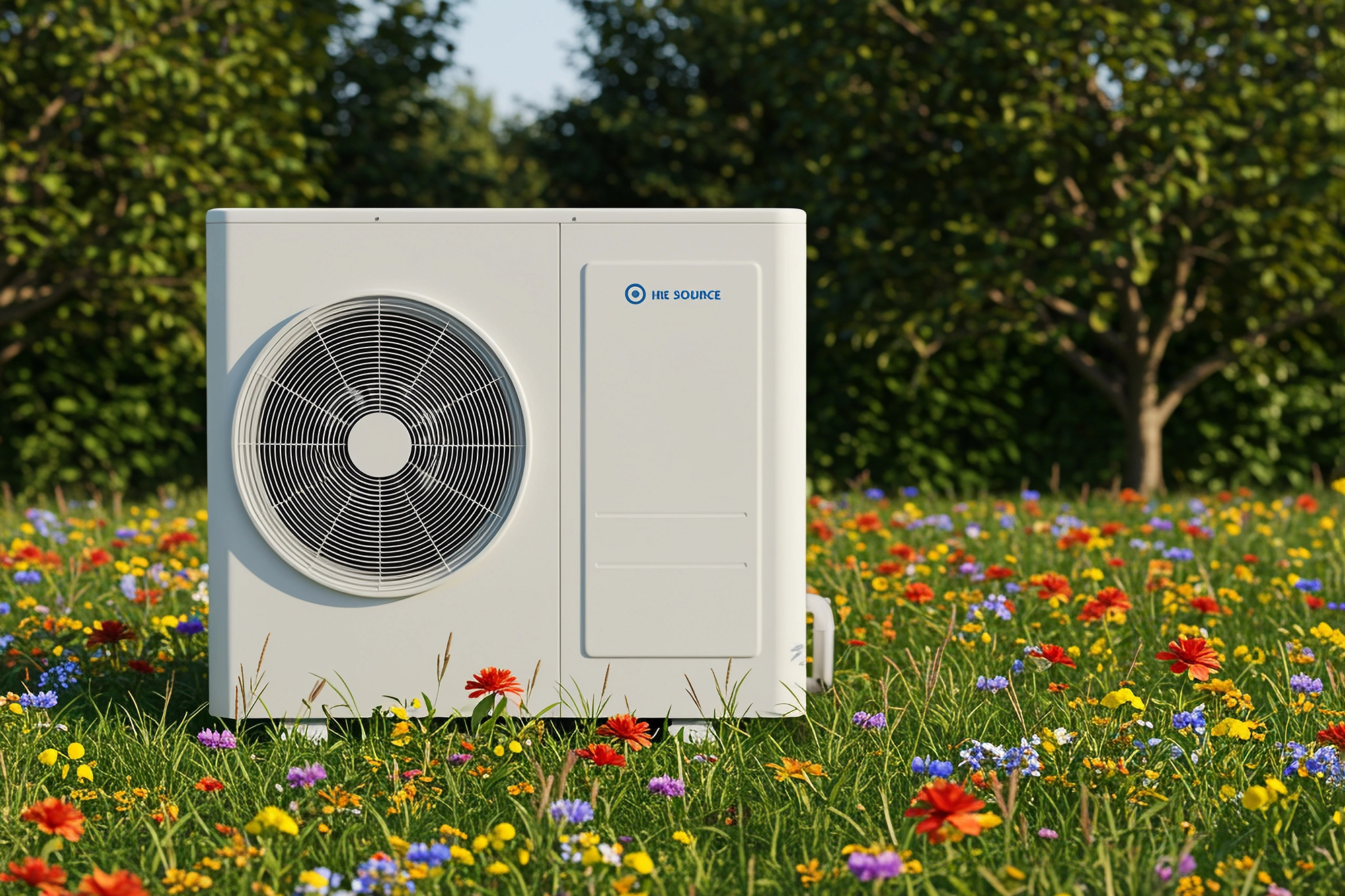
Whether your home already features a modern boiler or you’re starting from scratch, refrigerant split systems are highly adaptable. The indoor hydrobox can be integrated with your existing central heating infrastructure — whether that’s conventional radiators or low-temperature underfloor systems.
From an installation standpoint, these systems require careful electrical planning. Our qualified engineers manage the entire electrical scope in-house — whether it’s upgrading your consumer unit, running new power supplies, or integrating with solar PV and smart home systems. More details are available on our electrical solutions page.
Another key benefit is installation flexibility. Refrigerant pipes can run up to 50 metres between the outdoor and indoor units, giving homeowners the freedom to position the external unit away from the main building. We often hide outdoor units in landscaped gardens, side alleys, or near utility areas — keeping the property’s external appearance clean and undisturbed.